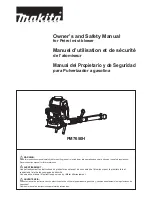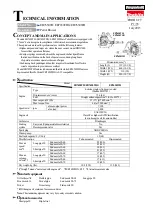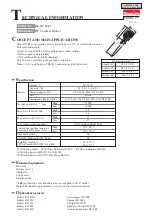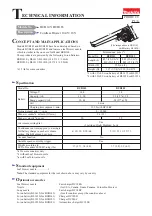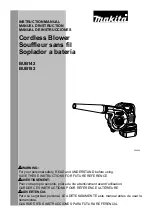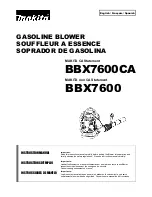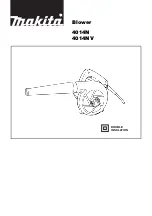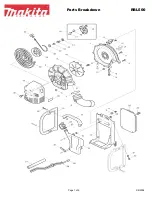
HF-7-600 Page 11
AIR FILTERS AND FILTER SILENCERS
Servicing the air filters is one of the most important maintenance operations to be performed to
insure long blower life.
Servicing frequency of filter elements is not time predictable. A differential pressure indicator, with a
continuous gauge reading, should be installed across the inlet filter. It will tell how much of the service life
of the filter element has been used. It will also eliminate both premature filter servicing and premature
blower failure due to a plugged filter when the filter pressure drop is used to establish maintenance
points.
In all cases refer to the filter manufacturer
’s service instructions. Due to the many types of filters, it is not
practical to give specific instructions covering all models.
NOTICE
No matter what type of filter is used, always make sure all seats, gaskets, clamps and hose
connections on the filter and inlet line are absolutely air tight. Each time the filter is serviced,
inspect interior of the blower for dirt.
PERIODIC INSPECITIONS
A good maintenance program will provide for periodic inspections of the blower and drive components.
The following inspections may prevent major repairs and downtime:
1. Observe the blower for vibration, heating, noise, oil leaks and excessive air leaks.
2. Check for proper operation of the filters, silencers, couplings, drive belts, motor (or power unit),
relief valve, check valve, gauges and other controls.
3. Disconnect the drive and turn the blower by hand to check for drag, tight spots, bearing wear and
gear backlash. Rotation should be free with no indication of drag or metallic interference.
4. Inspect the interior of the blower through the inlet or discharge port for cleanliness, corrosion and
contact of internal parts.
5. Check the tightness of all screws, bolts and nuts.































